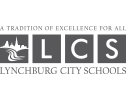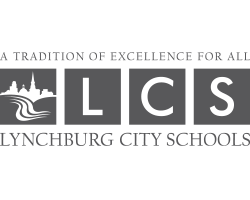There are many definitions of giftedness. Lynchburg City Schools has adopted the following definition in accordance with the Virginia Department of Education definition:
Students who are identified with attributes of giftedness have the potential to achieve high levels of accomplishment. Rigorous curriculum, instructional experiences that offer deep and complex content, and a variety of services help ensure these needs are recognized and addressed.
Lynchburg City Schools identifies and provides additional services to students who demonstrate giftedness (General Intellectual Ability). While general abilities are demonstrated across a range of academic areas. Lynchburg City Schools does not discriminate in admission or access to, or in treatment in, its gifted programs, services, or activities based on race, color, national origin, gender, disability, or age, in accordance with state and federal laws.
Referral Procedures
All grade 2 students enrolled in Lynchburg City Schools are screened in order to create a pool of potential candidates for a full time gifted program at their zoned Gifted Opportunity Center. The Cognitive Abilities Test is given to all second graders during the first semester. Students who score in the 86 Local Percentile Rank or higher based on the CogAT Complete test are included in the talent pool upon parent/guardian approval. Parents/guardians of students in this initial pool are sent an information/permission form to collect additional information on the student.
Parents/guardians, school personnel, and/or community members may also initiate a referral for currently enrolled students who did not score in the 86 Local Percentile Rank or above but who they wish to be considered for identification for gifted services. All referrals for full-time gifted services must be submitted by the annually posted deadline.
Identifying Gifted Learners
There are many challenges in identifying young students as gifted. One such challenge is distinguishing between very bright children who have experienced an enriched home or pre-school environment and children whose giftedness will create a need for acceleration that is beyond traditional enrichment activities.
There are no set rules to distinguish if a child is a very bright child or a gifted learner—all children are individuals and express themselves in their own ways. However, research attempting to identify common characteristics of these children provides some general differences that can be helpful to consider.
| A Very Bright Child | A Gifted Learner |
|---|---|
| Knows the answers | Asks the questions |
| Pays attention | Is mentally involved |
| Has good ideas | Has very creative ideas |
| Answers questions directly | Discusses in detail |
| Is in the top group | Is beyond the group |
| Listens with interest | Shows strong opinions |
| Understands ideas | Constructs abstractions |
| Relates well to peers | Relates well to adults |
| Absorbs information | Manipulates information |
| Completes assignments | Initiates projects |
| Is a good memorizer | Is a good guesser |
| Is pleased with own work | Is critical of own work |
| Enjoys school | Enjoys learning |
If you think your child may be gifted, please contact your child’s school and request a gifted identification referral form during the established gifted referral window. Referrals for gifted services are accepted once per year for currently enrolled students.
Important Dates for Gifted Screenings and Referrals
| Event | Date |
|---|---|
| Cognitive Abilities Test (CogAT) administered to all second graders | December |
| Gifted Referral Window | January 12-30, 2026 (extended to Feb. 6, 2026) |
| Second grade portfolio writing sample | February |
| Gifted screening & data collection for referred students (grades 2-4) | February-March |
| All gifted referral folders due to Central Office | March |
| Gifted Review Committee | March |
| Gifted eligibility letters mailed | April |
| Receive confirmation of gifted service participation | by May 1, 2026 |
When enrolling children in Lynchburg City Schools, parents/guardians shall notify the enrolling school if the student was identified for gifted services in the previous school system. This ensures that the receiving school obtains necessary gifted education documents from the student’s previous school.
After confirming the gifted identification from the previous school system, the student will be provisionally identified for gifted services. The child will then be evaluated for gifted services eligibility using Lynchburg City Schools criteria and the established screening timeline. A previous identification in another school system does not automatically guarantee eligibility for Lynchburg City Schools gifted education services.
Following the receipt of a referral, gifted education personnel will send home a permission to collect data form and a parent/guardian questionnaire. When this form is returned, gifted education personnel will work with other school and division personnel to collect necessary testing data and work samples. The school division utilizes a gifted review committee to evaluate components of student portfolios. After scoring is completed by the gifted review committee, the Department of Teaching & Learning reviews overall scored data to determine the level of gifted service options for referred students. Service options for grades 3-5 include:
- DEPTH: The school-based gifted program, DEPTH (Developing Expanded Perspectives Through Higher-level thinking), is available at each elementary school to students in grades 3-5 who have been identified as gifted. These students are provided with pull-out enrichment services for 45 minutes each week. During this time, students work on projects and activities designed to challenge thinking and provide rigor across core content areas.
- Gifted Opportunity Center: Gifted Opportunities Centers are zoned full-time programs for highly gifted students from each elementary school. The Gifted Opportunities Center teachers provide accelerated, inquiry based opportunities that allow students to delve into concepts with depth and complexity. There are a limited number of classrooms in a Gifted Opportunities Center.
Once a student has been found eligible or ineligible to receive gifted services, a notification letter is sent to the parent/guardian detailing the selection decision. If the student is found eligible, the letter will request permission for the student to receive specific services recommended by the division-level gifted review committee. Parents must confirm participation by the established date in the communication.
If you disagree with the gifted eligibility decision, you may initiate an appeal by contacting the school principal. These appeals are sent to the Department of Teaching & Learning and are reviewed by the central office appeal committee. A representative from the Department of Teaching & Learning is responsible for notifying parents/guardians and/or the individual initiating the appeal of the decision within twenty instructional days of receipt of the written appeal. All decisions made by the central office appeal committee are final.
If you have any questions concerning the referral process or questions about any specific gifted service available at your child’s school, please contact your school.
If you would like additional information related to the Lynchburg City Schools Local Plan for Gifted Education, please call the Department of Teaching & Learning at (434) 515-5040.

